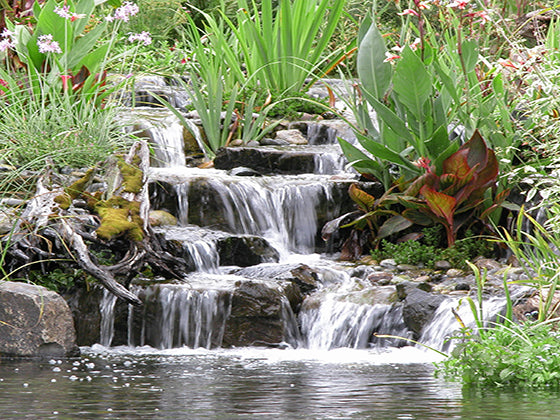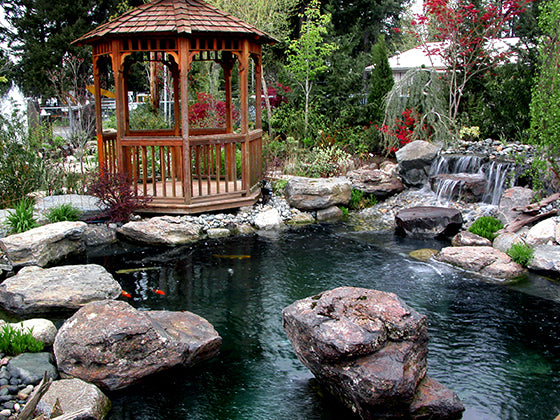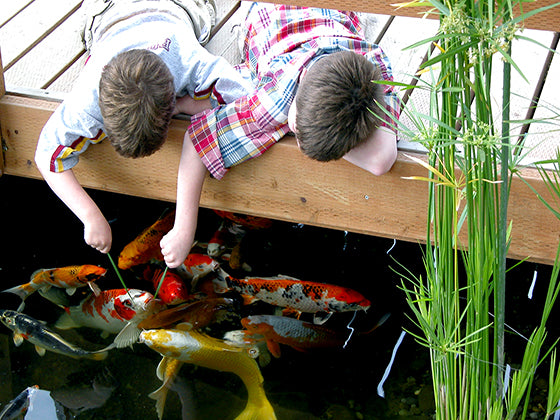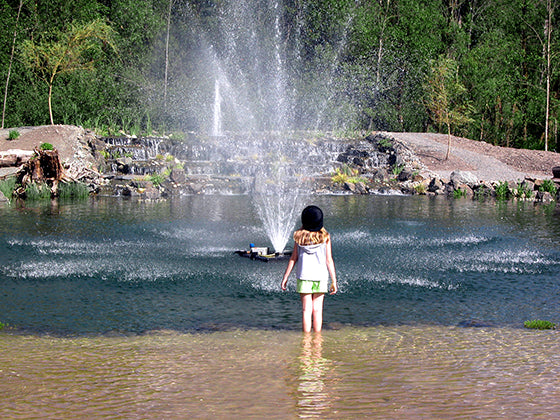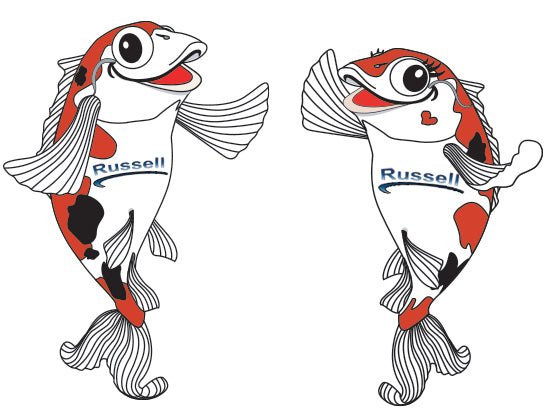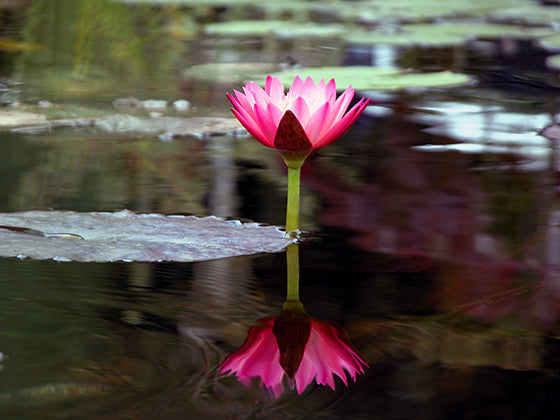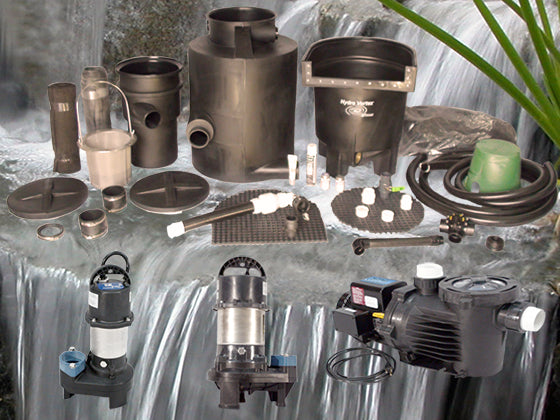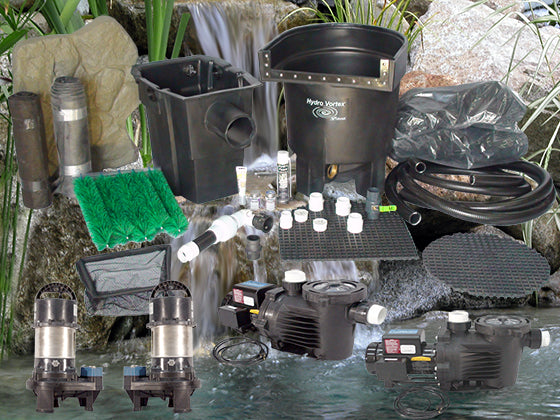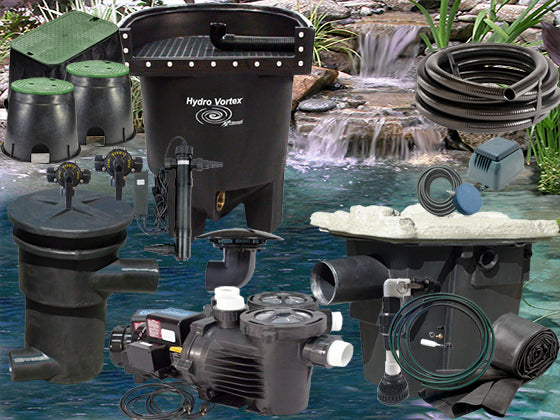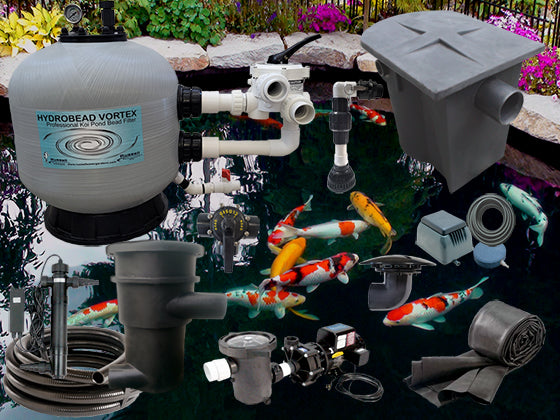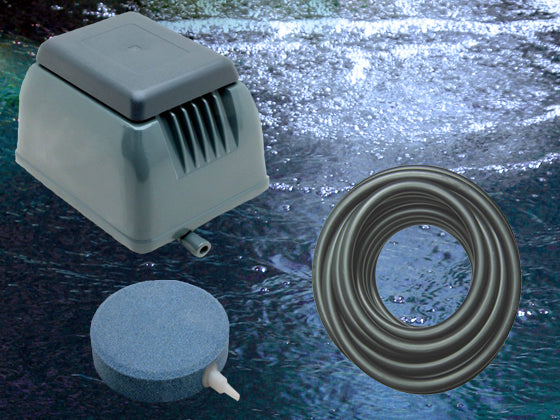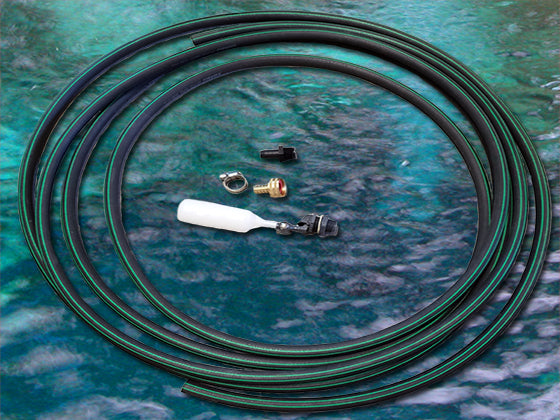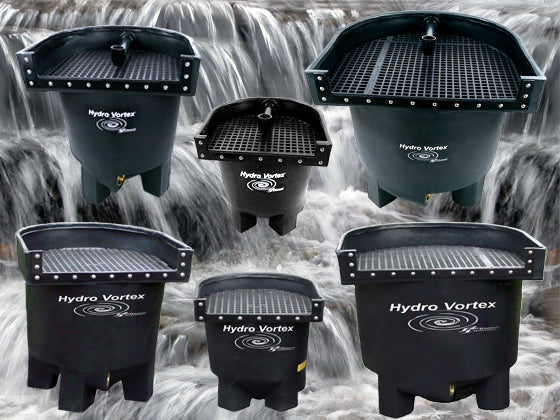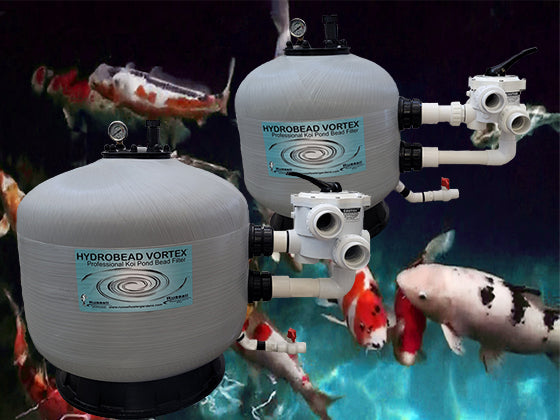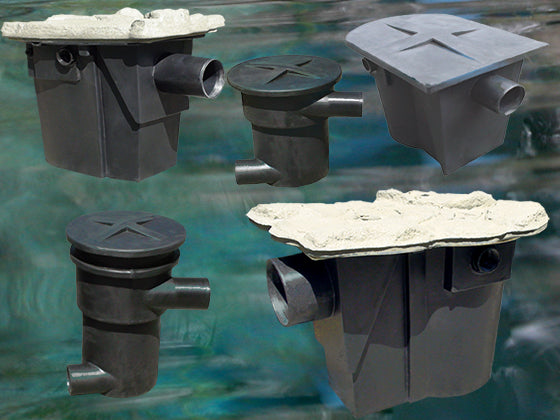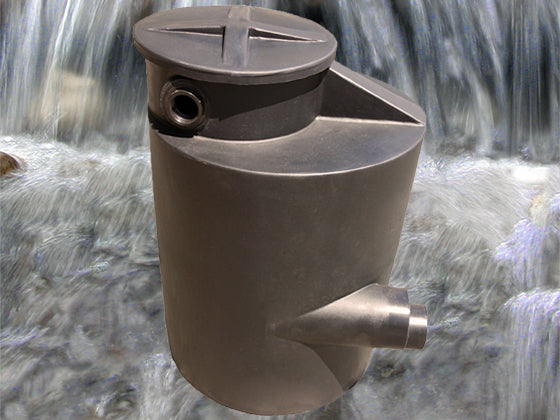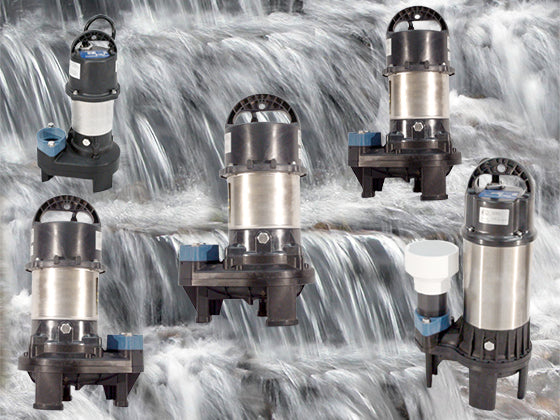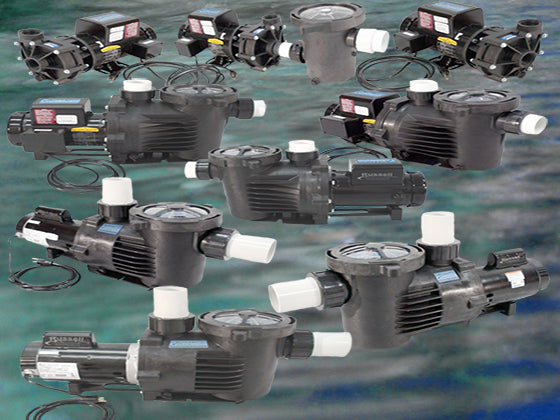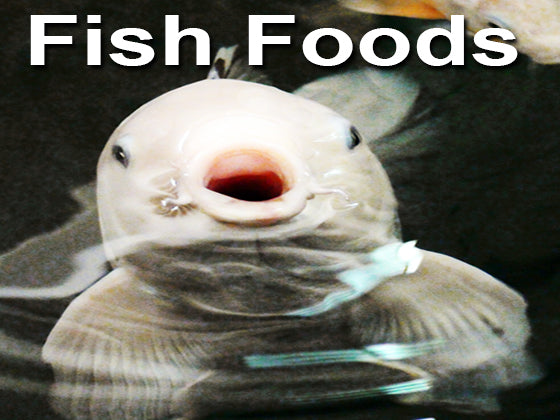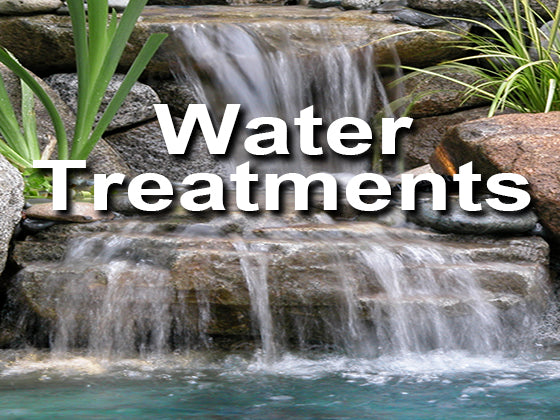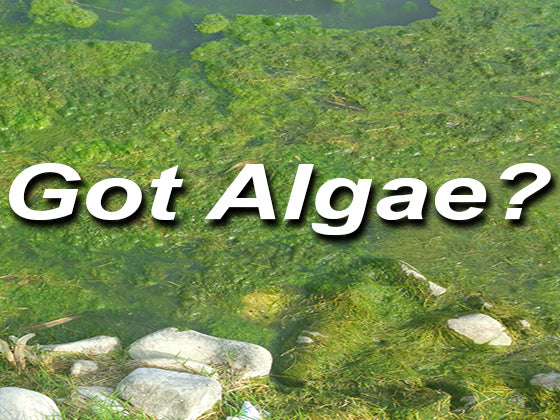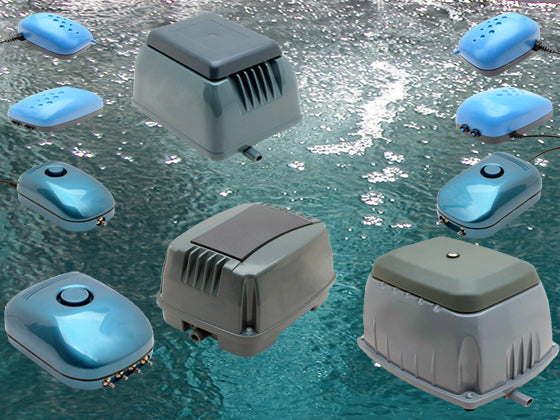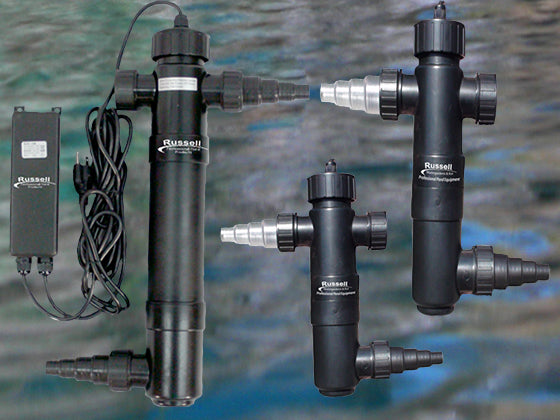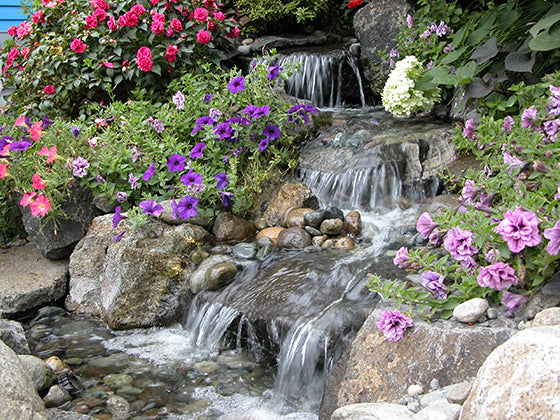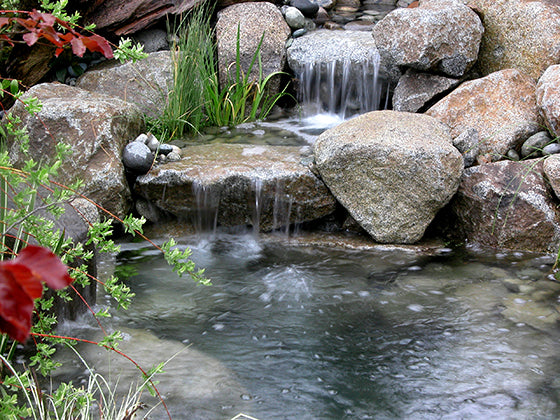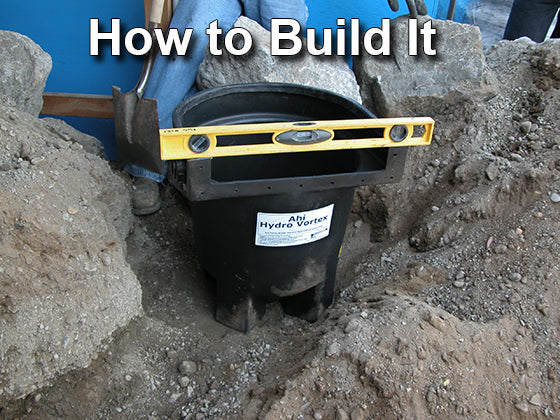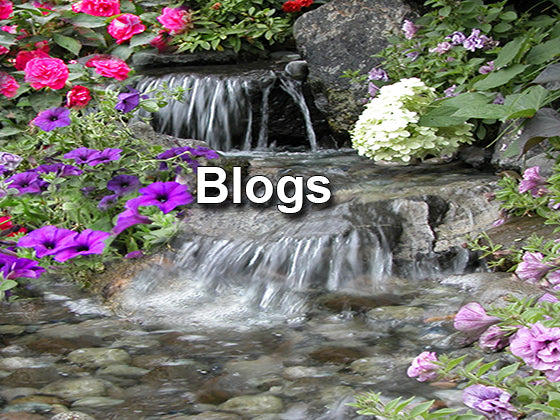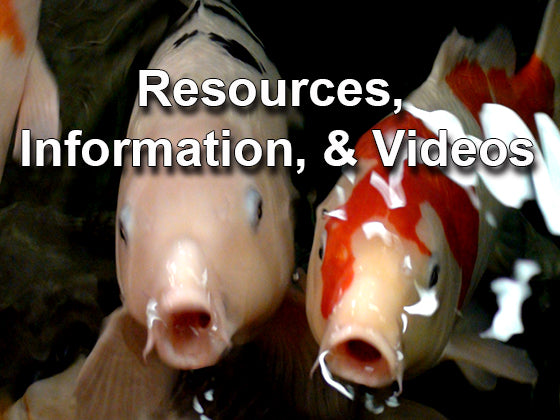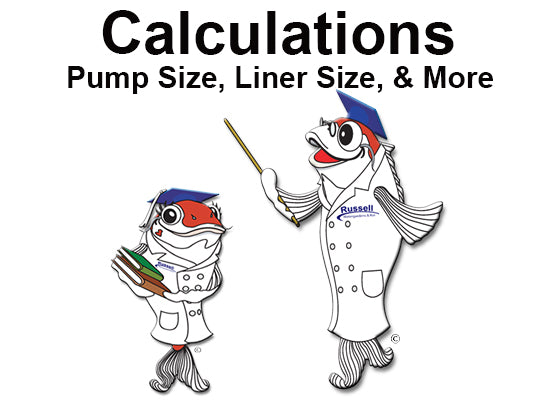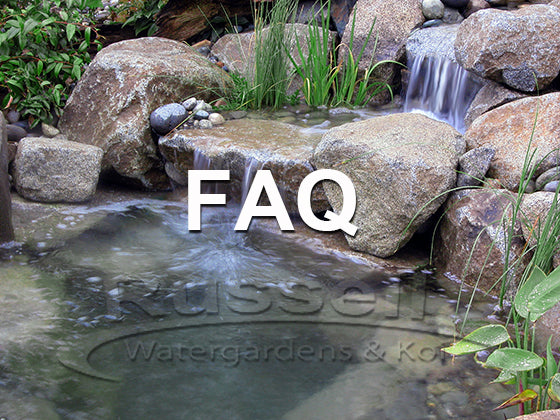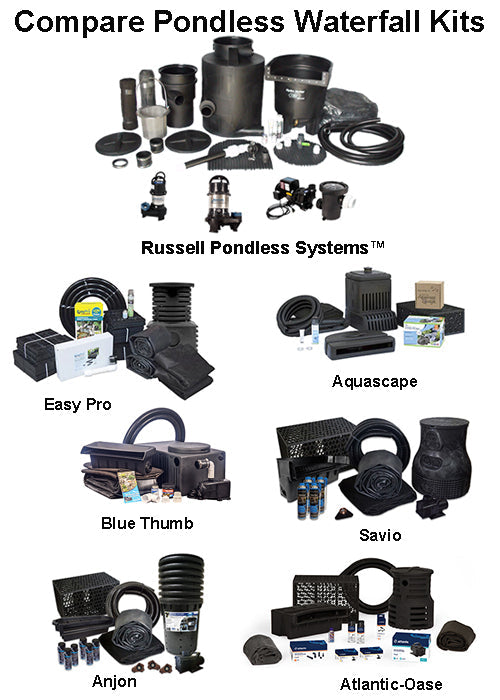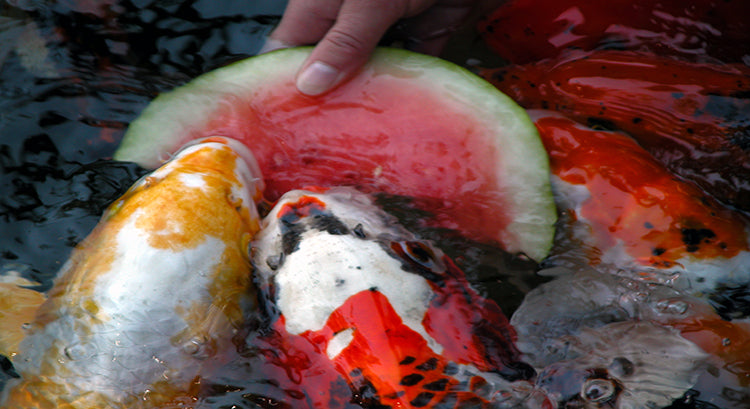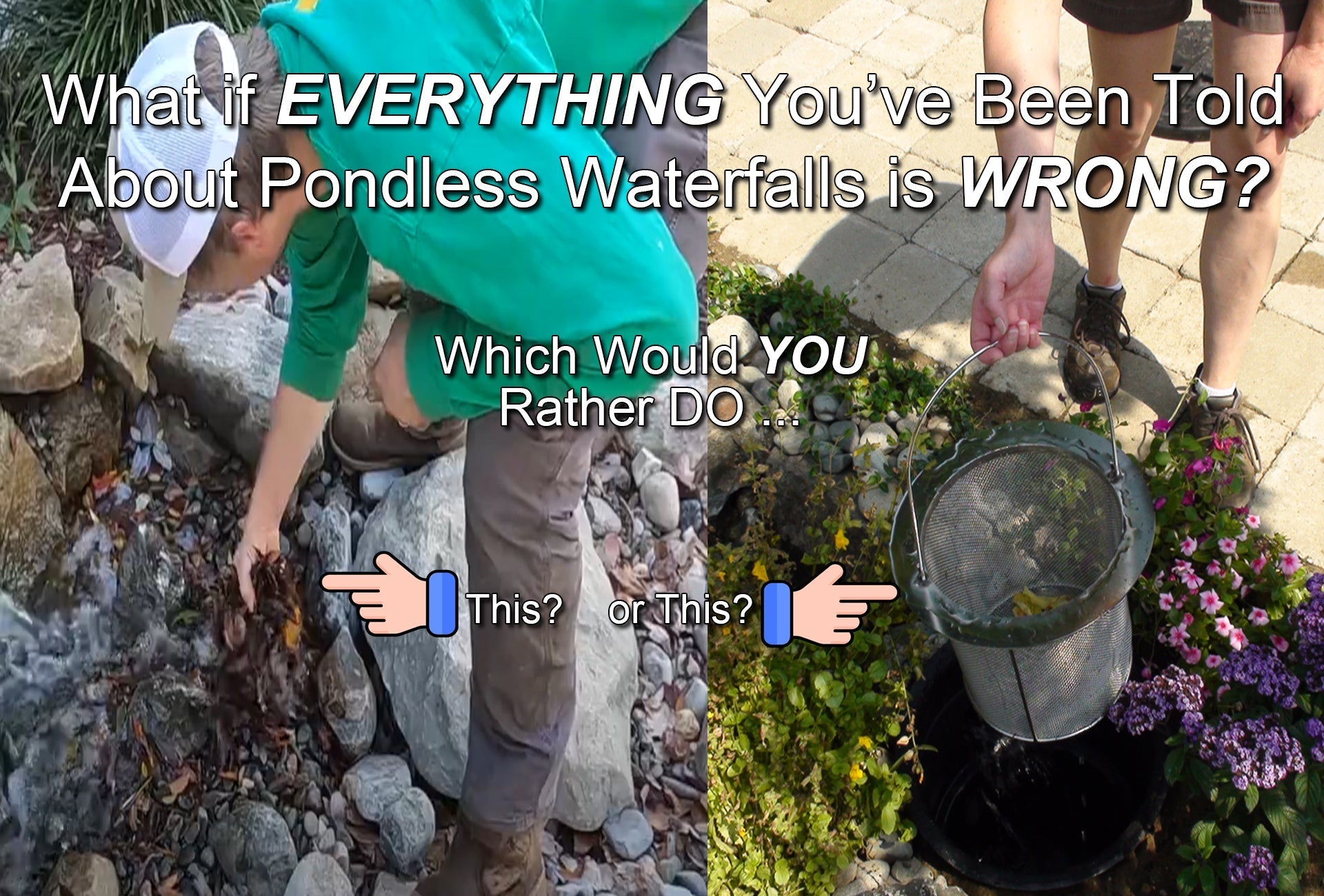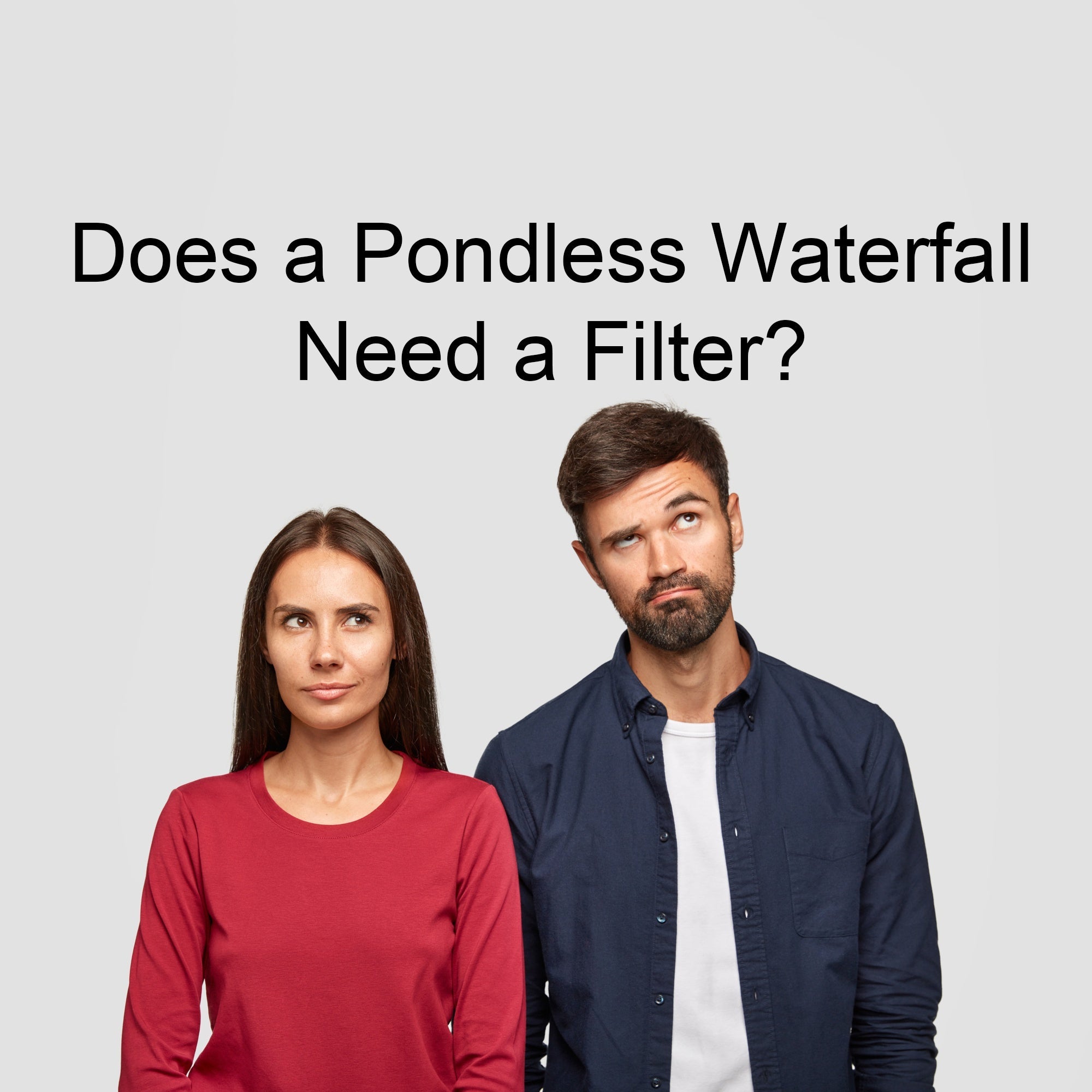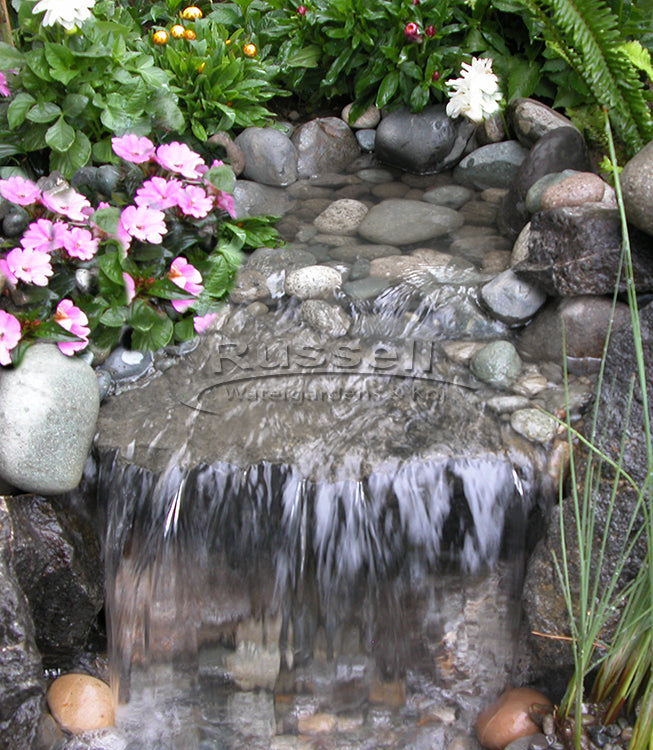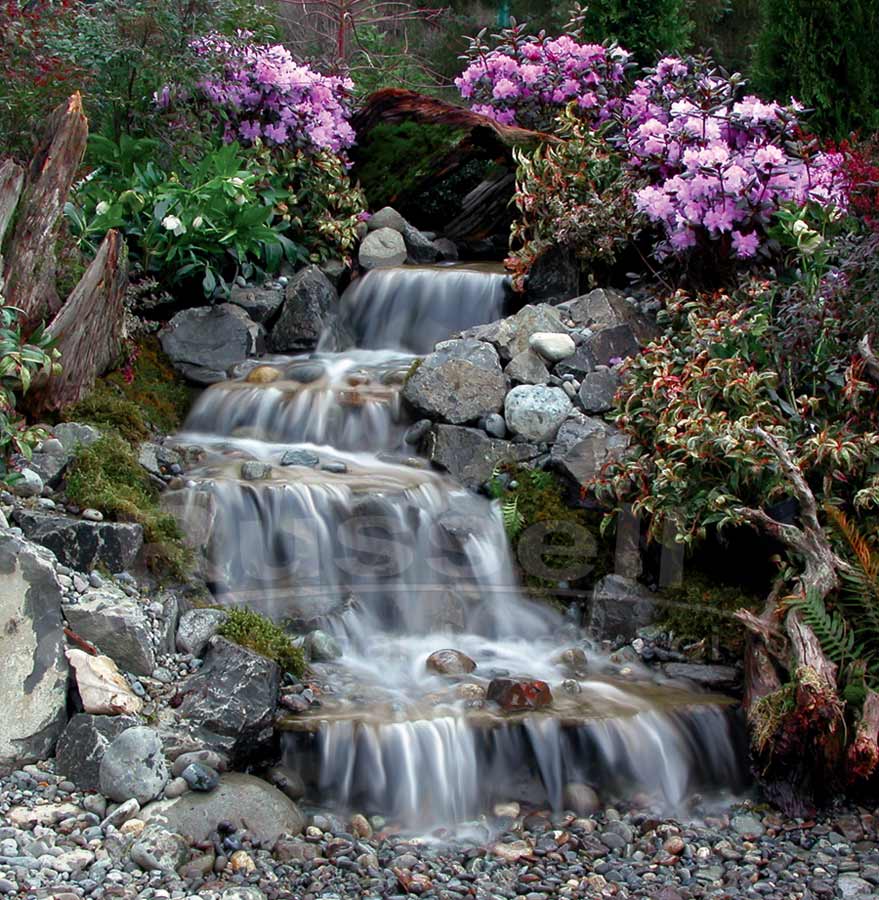Over the years, many people have asked us "How to get rid of pond algae?", and "What is the best algae control for ponds?". First off, thank you for having a pond! They are so beautiful and fun when they are easy to clean and maintain. If you have algae in your pond, how do you deal with that pesky algae? How to get rid of algae in pond naturally?
When you have too much algae in your pond, the first thing we will ask you is "What type of algae do you have?" Is it pea-soup green pond water? Or is it algae growing or the rocks and other submerged surfaces in your pond? Do you have floating 'blobs' or algae in your pond? Are your waterfall stones green? Do you have fish in your pond?
All types of pond algae grows when it has a food source and photosynthesis. Algae grows when it is fed and has plenty of sunlight. Pretty simple concept. There are many algaecide products available that kill algae, we have several here on our web site for you to choose from. Give us a call if you need help deciding which algaecide will work best for you. Do you have fish in your pond? Make sure that any algaecide that you purchase is safe for use in ponds with fish. If you don't have fish or other living pets in your pond, then you can use a variety of algaecides, or even chlorine. The thing to realize with algaecides, is that dead algae feeds more algae!
To properly address algae in your pond, first decide what type of algae you have. There are many types of pond algae and the most common types are 'string algae' which is the filamentous green 'stringy' type that forms stringy mats or 'algae blobs', 'green-water algae' which is a planktonic algae, brown algae, and even red algae.
No matter what type of algaecide you decide to use, I have found that it is a good idea to physically remove algae blobs prior to applying an algaecide. If you have green water, do a partial water change prior to adding a green water algaecide. This is for two reasons; #1 Removing algae blobs or green water before applying an algaecide will require less algaecide. #2 Dead algae is just as ugly as live algae, dead algae can lower dissolved oxygen levels in the pond, and dead algae will feed yet more algae. For best results, try to remove as much algae as possible prior to applying an algaecide.
When removing a blob of algae, look at it closely. Sometimes the algae will reveal what it is feeding on. You may see leaves or bits of mulch or other debris in the algae blob. If so, make sure to physically remove what the algae blob is feeding upon from the pond.
As I said before, algae grows when it has a food source and sunlight. This cannot be said enough. Algae grows because something in your pond is feeding it. Pure and simple. You can kill your algae, but it will come right back if you don’t address what is feeding your algae in the first place.
What feeds algae? Dead algae, fish waste, uneaten fish food, leaves, grass clippings, twigs, tree and weed seeds, bark, mulch, dust, pollen, and fertilizer run-off. Anything that the wind or rain can blow or wash into your pond will feed algae. So how do you deal with what blows or washes into your pond?
If you have algae in your pond, something is feeding it. The first thing you should do is look at your pond closely. Look at the entire perimeter. Are there leaves, tree needles, bark, mulch, or other debris in the pond, or stuck in between rocks, gravel, or boulders? Look between the rocks and boulders on the edges of the pond or stream if you have one. Does rainwater or irrigation water run into the pond? If water runs through mulch, bark, or off of a patio and into your pond, the run-off is infusing massive amounts of nutrients that will feed algae in your pond. Make sure that there is no area, or areas that allow surface water run-off to flow into the pond.
To help prevent surface water run-off from flowing into your pond, make sure that there is a small berm or mounding around the perimeter of your pond so no irrigation or any type of ground surface water can flow into your pond, stream, or waterfalls. Ensure that no mulch, bark, or any type of plant or lawn fertilizer can wash into your pond.
The next thing is to have good mechanical and biological filtration. An ideally built pond will have both mechanical and biological filtration. If you only have one or the other on your pond, you will be leaving nutrients in the pond that will feed algae. Mechanical filtration will aid in the removal of wind-blown debris before it can become a food source for algae. Biological filtration is to aid in removal of dissolved organics before they can become food sources for algae. You should have both a good mechanical filter and a good biological filter on your pond in order to create the healthiest conditions for your koi and pond fish, and to remove as much of the nutrients as possible from the pond that would otherwise feed algae.
A good mechanical filter such as an easy to clean pond skimmer will help remove debris that is blown into the pond. We have several easy to clean Pond Skimmers to choose from that will use the power of your pump to 'vacuum' the surface of your pond. Leaves and other debris will be drawn into the skimmer's leaf net, filter basket, and/or filter brushes. Simply remove the leaf net, filter basket, or filter brush rack and hose them off. All the leaves and other debris that the skimmer catches and holds for you to easily remove will not become a food source for algae.
A biological filter provides water polishing and surface area for beneficial bacteria to grow and colonize. The beneficial bacteria inside a biological filter consume fish waste, ammonia, dust, pollen, and other dissolved organics from the water before algae can feed upon it.
We have three sizes of easy to clean biological waterfall filters and two sizes of easy to clean biological koi pond bead filters. A biological filter when seeded with beneficial bacteria breaks down dissolved organics before algae can feed on them.
Many people call and email us with questions about algae in their ponds. Before recommending a product for your algae problem, we will ask you several questions:
- Do you have a properly sized biological filter for your water volume and fish load?
- Can you easily backwash your biological filter?
- Do you have a pond skimmer? How often do you clean it?
- If you don’t have a pond skimmer, where is your pump located?
- What is your total water volume in the pond?
- What is the flow rate of your pump?
- What size, and how many fish do you have in your pond?
- What type of fish food do you feed your fish?
- Do you have any debris in the pond?
- Do you have any debris between the rocks and boulders around the perimeter of your pond?
The reason we ask these questions is simple, we want to get an idea of what could be feeding your algae bloom. If your biological filter is too small for your water volume or fish load you will have excessive nutrients in your pond that will feed algae. If you cannot routinely backwash your biological filter, it will become clogged and drastically inefficient. An inefficient, dirty biological filter will pass nutrients to your pond that will feed algae.
If you don’t have a pond skimmer, what happens to all the leaves and other debris that blows into your pond? Windblown debris in your pond will feed algae.
If you have your pump at the bottom of the pond, the pump will suck all debris down to the bottom of the pond where it will start to decay and become a food source for algae. ABSOLUTELY NEVER PLACE YOUR PUMP AT THE BOTTOM OF YOUR POND!!!!!!
If you have an external pump sucking water through a pipe grid system at the bottom of your pond in an ‘undergravel’ filtration system, you will be sucking all waterborne debris to the bottom of the pond where it will become a food source for algae. ABSOLUTELY NEVER SUCK WATER OUT OF AN UNDERGRAVEL FILTRATION SYSTEM!!!!! Pulling water from the surface down to an undergravel filter pipe grid at the bottom of your pond will pull all the debris down to the bottom of the pond where it cannot be easily removed. Guess what will happen ….. It will feed algae!
I have written an article about why undergravel filters fail, read it here: Why Undergravel Filters Fail
I have written another article about what to do with your undergravel filter, read it here: What Should You Do with an Undergravel Filter
If you don’t have a pond skimmer, I highly recommend it. If your biological filter cannot be easily backwashed, I recommend replacing it with one that can be routinely and easily rinsed for maximum efficiency. If you have a common "annually-cleaned" waterfall filter, I have written an article that explains why you may be having too much algae in your pond, read it here: The TRUTH About Annually Cleaned Waterfall Filters.
Algae grows because it has a food source. Make sure that your pump is not sucking from the bottom of your pond. Make sure to have a pond skimmer and to empty it more often than you think you should. Make sure you have an easily backwashed biological waterfall filter or koi pond filter seeded with beneficial bacteria. Make sure you are feeding your fish healthy foods that don’t have any corn in them. If your pond is in direct sunlight, you can reduce photosynthesis by tinting the water blue with a fish safe pond tint. Lastly, make sure that no rain, or irritation runoff water can enter your pond.
If you need further assistance, give us a call or click our “Chat” button and we will be happy to help you figure out your algae problem, and to find the best solution.

